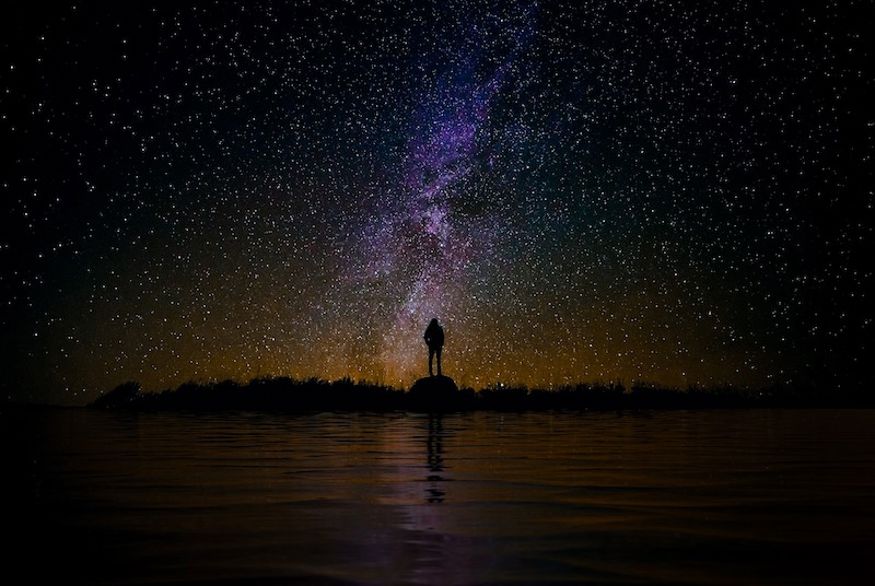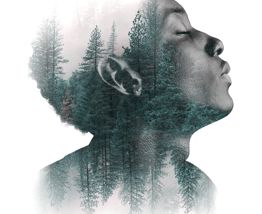Enrol in an online course today for flexible, self-paced learning—no fixed schedule required. Plus, enjoy lifetime access to course materials for convenient revisiting.
Wild Therapy, Wild Bodies

Increasingly, clients enquiring about ecopsychology are also drawn to embodiment. This makes sense – when we work outdoors, we work with all of our senses, many of which can be neglected in traditional talking therapy, with its preoccupation with our thinking minds.
Some clients sense viscerally the current state of human disconnect from the planetary body. It is echoed in their own bodies, manifesting symptoms of all sorts, from what has become known as ‘eco-anxiety’ – in my book, a healthy, human response to the ways humans and their systems in the Global North are mistreating the planet – through to imbalances of many forms.
I feel fortunate to have had childhood roots firmly planted on the common where I lived, playing, marvelling at the view, hanging out with birds, bracken, human friends, and our dog. Later, I trained in an ecopsychology tradition rooted in body psychotherapy.
‘Wild therapy’, one of the branches in the ecopsychology tree I practise, was originated by Nick Totton, emerging from his 30-plus years developing ‘Embodied Relational Therapy’. This emergence makes sense, given that both ecopsychology and body psychotherapy pay attention to the tears and ruptures, as well as the celebration of connection – in the first case with other-than-human and more-than-human life and, in the second, with our bodies.
There is a more obvious continuum as we work with our bodies, being part of this vast planetary body. Humans and most plant life share 97 per cent of DNA, and we are partly made of stardust. With that in mind, even the term ‘nature’ becomes a bit of a misnomer, and reinforces an unhelpfully dualistic worldview.
Wild therapy and ecopsychology are about working outdoors as well as bringing the outdoors back in. This movement can sometimes highlight aspects of ourselves that have become over ‘tamed’ and need ‘re-wilding’. Returning to the room, our channels of sensory information can feel widened. Working in this way also reminds us that the room is a microcosm of the universe, and the therapeutic relationship includes all the networks of life of which both therapist and client are a part. What can simply look like two humans in a room is anything but.
The questions I am most often asked about wild therapy by other therapists tend to relate to risk – the risks involved in changing the container and the contract. For some clients, the chance to work in an embodied way outdoors can be the safest thing they’ve ever experienced. I remember one client telling me the most unthinkably awful thing that had happened to them, precisely because we were under the vastness of the sky. We had a big enough container – all of life around us in a more visible way, to witness and hear us.
As ever, there’s a need for clear contracting in both body psychotherapy and ecopsychology. I can notice greater resonance as a client and I get into the nitty gritty of working outside – what do we do if we bump into someone we know? Are they allergic to dogs – or bee stings? There’s something fabulously equalising in this, perhaps touching our humanity, our ordinariness, and interrupting the unhelpful power dynamics that can be at work and, potentially more harmfully, often go unacknowledged in therapy.
I love that body psychotherapy, originating with Wilhelm Reich’s character structure, underlines how society shapes us for good and ill, going way beyond an individual focus. Likewise, ecopsychology points to the devastating effects of the systemic over-consumption of the late stage capitalist habits of us humans in the Global North.
With the recent eruptions of #MeToo, #BlackLivesMatter and many other mobilisations of people who mightn’t have previously self-identified as activists, the uncovering of oppression is now daily news. Body psychotherapy and ecopsychology can have a vital role to play. They can help us notice, understand and act on systematic oppression – including the harm we cause our planetary body, in parallel with the harm we cause marginalised peoples, many of whom lack access to safety in outdoor spaces, and/or to therapy.
Living through lockdowns has led many of us to a new appreciation for time spent moving and outdoors, with a knock-on interest in embodiment and ecopsychology in an increasing number of interested new clients. There has been much talk of how nature benefits human wellbeing.
Yet this is only half the story.
At the heart of wild therapy is remembering that we have a reciprocal relationship with other-than-human and more-than human life. It’s this regenerative relationship, the deeply respectful dance of giving and taking, which keeps the continuum of body psychotherapy and ecopsychology alive and well.















